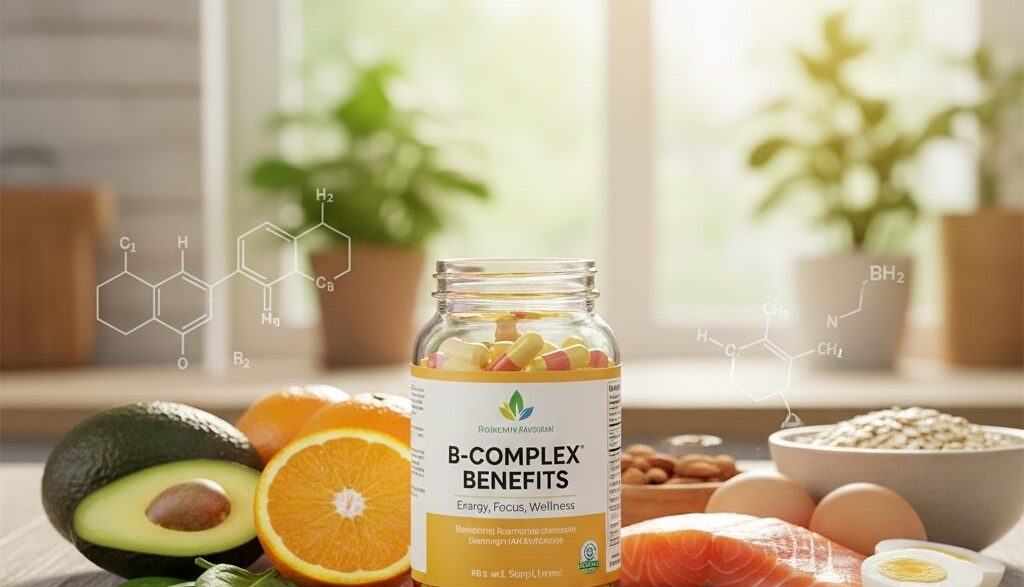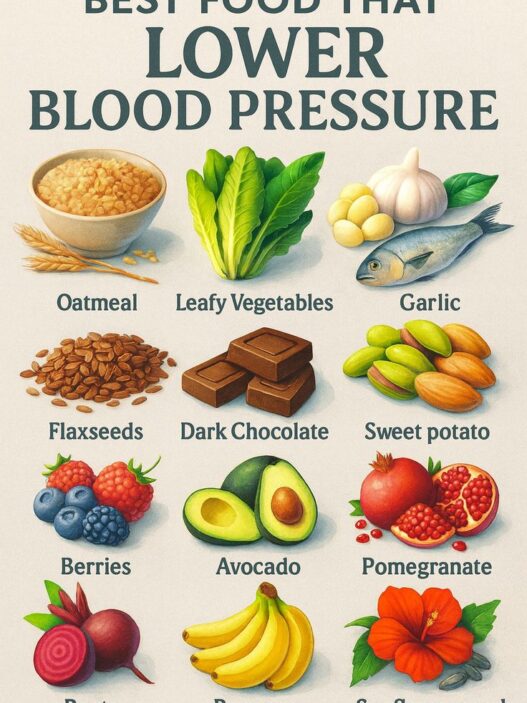Vitamins are the foundation of good health and among them the vitamin B complex stands out as a powerhouse of good nutrients that support energy, brain function, metabolism, and overall wellbeing.
Unlike other vitamins, complex B is the series of vitamins that contain essential 8 vitamins of B, each plays an important role in maintaining health and gives its benefits.
Vitamin B Complex
Vitamin B complex is a series of vitamins that plays a crucial role in energy production, metabolism, nerve function, and formation of red blood cells.
Since the body cannot store large amounts of vitamins in the body so they must be consumed regularly through diet. The eight water soluble vitamin B complexes are mentioned below.
- Vitamin B1 (Thiamine) – it helps to convert nutrients into energy.
- Vitamin B2 (Riboflavin) – it supports skin health and metabolism.
- Vitamin B3 (Niacin) – it improves digestion, skin health and nervous system functions.
- Vitamin B5 (Pantothenic Acid) – it is essential for hormones and energy production.
- Vitamin B6 (Pyridoxin) – it regulates mood, supports the immune system and aids protein metabolism.
- Vitamin B7 (Biotin) – it promotes healthy hair, skin and nails.
- Vitamin B9 (Folic Acid) – it is crucial for DNA synthesis, cell growth and pregnancy health.
- Vitamin B12 (Cobalamin) – it is vital for nerve health, red blood cells formation and brain function.
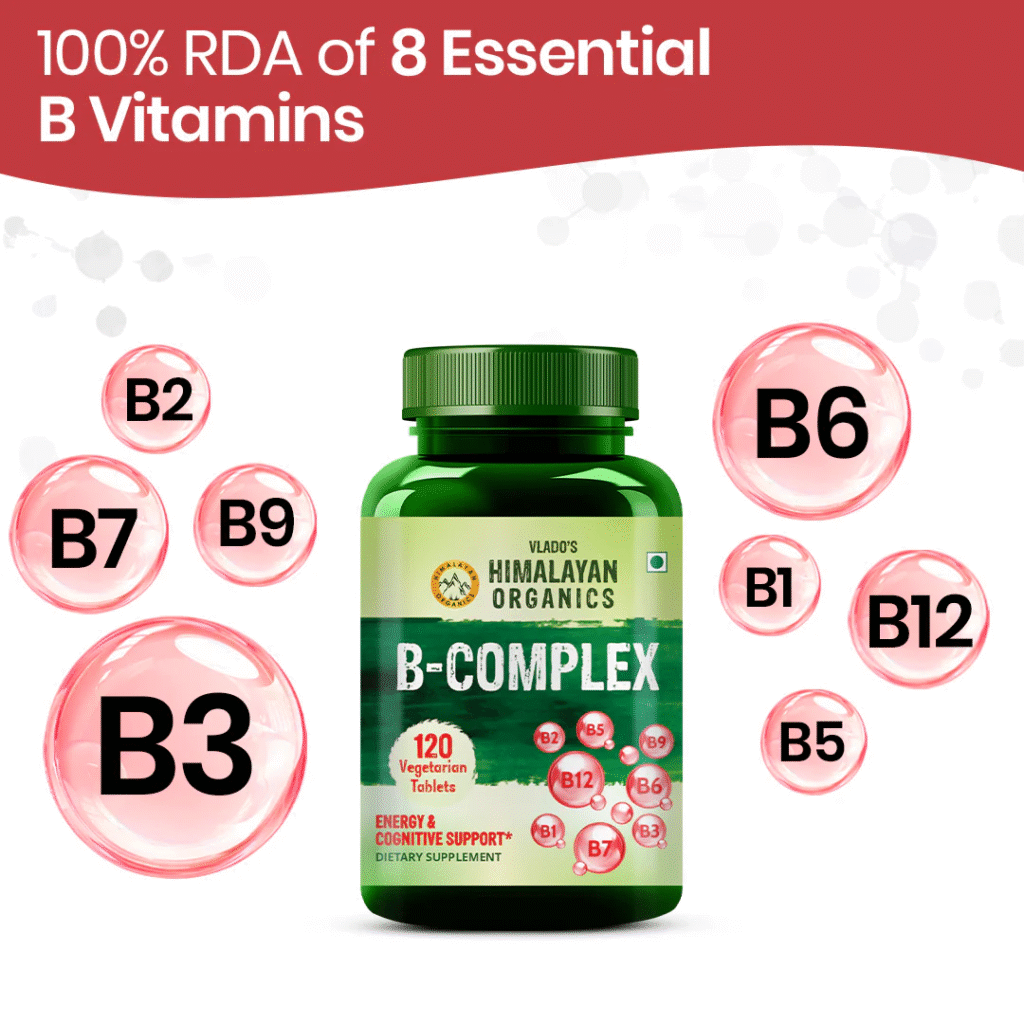
Food Rich in Vitamin B Complex
Incorporating vitamin B in the diet is easier than you think. Here are some natural food sources that are rich in vitamin B complex.
- Whole Grains – it includes oats, barley, whole wheat, brown rice that are rich in B1, B2 and B3.
- Legumes – it includes lentils, beans, chickpeas and are high in B1, B6 and B9.
- Meat and Poultry – it includes chicken, beef, turkey that is an excellent source of B3, B6 and B12.
- Fish – it includes salmon, tuna, and trout are rich in B3, B6 and B12.
- Eggs and Dairy – it includes eggs, milk and cheese that provide B2, B7 and B12.
- Leafy Greens – it contains spinach, kale and broccoli that are high in B9.
- Nuts and Seeds – it includes almond, sunflower seeds that are a good source of B2, B3 and B6.
- Fruits – it includes banana, avocado, citrus fruits that contain B6 and folate.
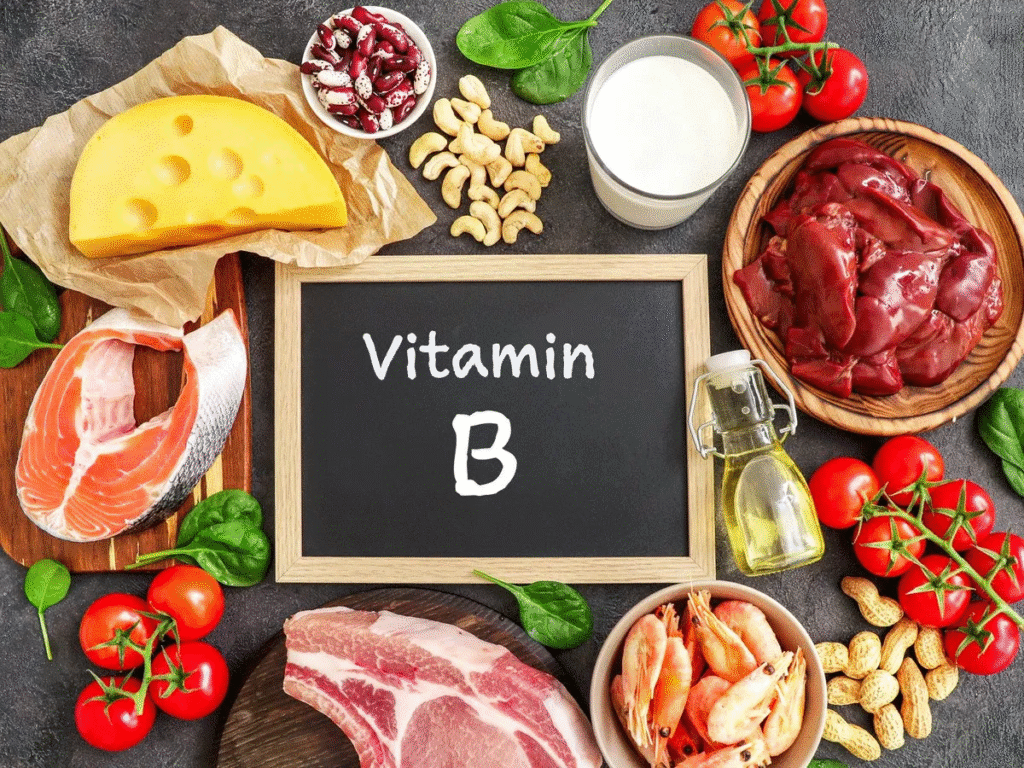
Signs of Vitamin B Complex Deficiency
Lack of vitamin B leads to many health problems that can lead to the deficiency of Vitamin B complex can lead to fatigue and weakness.
Depression, irritability or poor concentration are also the symptoms of the deficiency of vitamin B. Skin rashes and hair loss, numbness and tingling in hands and feet and anemia are also the signs of deficiency of vitamin B.
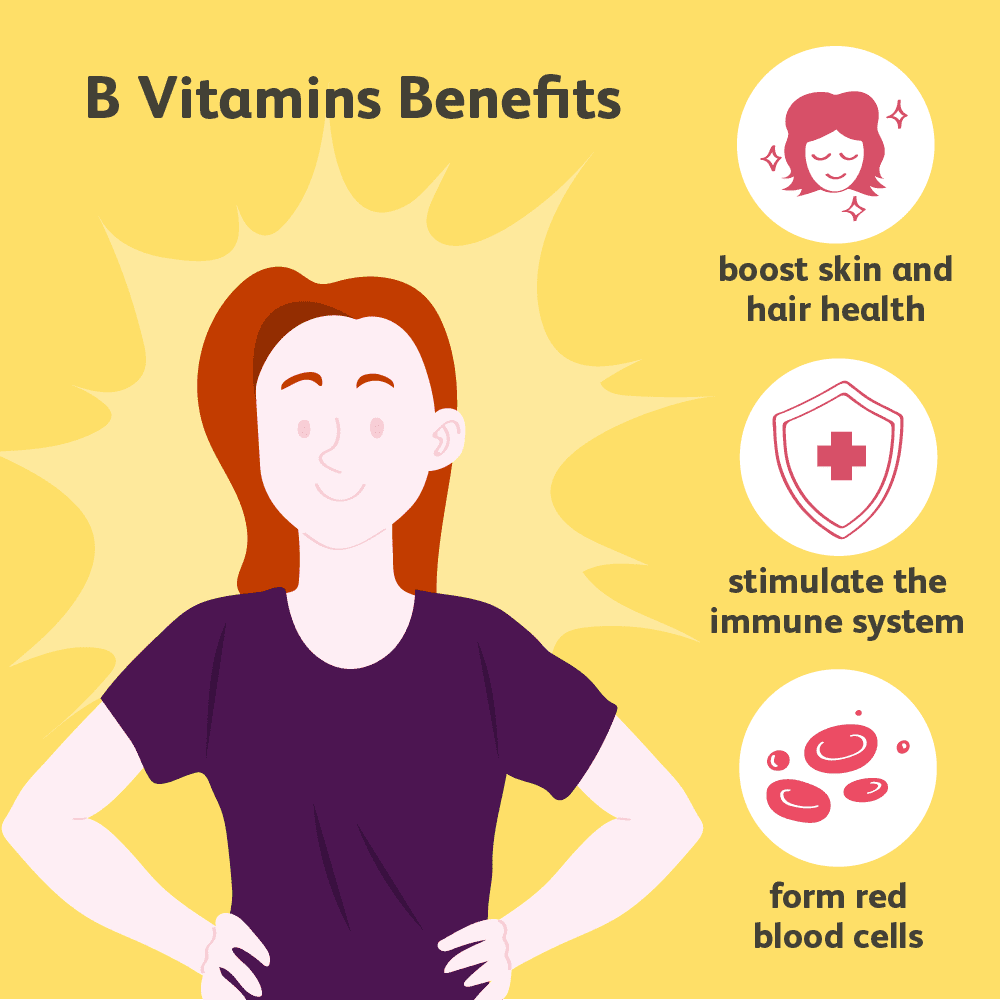
Benefits of Vitamin B Complex
There are a lot of benefits of Vitamin B, some of which are discussed here
Boost Energy Level – vitamin B, especially B1, B2, B3, B5, and B12 help the body to convert carbs, fats and proteins into usable energy. According to the National Institute of Health, adequate intake of B complex vitamins is linked to improving energy, metabolism, and reducing tiredness.
Support Brain Health – vitamin B6, B9 and B12 are particularly important for brain function as they help in the production of neurotransmitters such as serotonin and dopamine that regulate the mood. Research shows that B vitamin supplements can improve cognitive functions and reduce symptoms of anxiety and depression in some individuals.
Promote Healthy Digestion and Appetite – B1, B2 and B3 helps to promote digestion by helping enzyme breakdown and food efficiency, ensuring nutrients breakdown to get absorbed quickly.
Improve Skin, Nail and Hair Health – B3 and B7 are widely used for beauty benefits. They support skin elasticity, reduce acne, strengthen hair and prevent brittle nails. Study reveals that biotin deficiency leads to thinning hairs and dermatitis showing its direct link with beauty health.
Supports Fetal Development – folate that is vitamin B9, is essential during pregnancy. It helps in proper development of fetal brain and spinal cords and reduces the risks of neural tube defects. The World Health Organization recommends intake of folic acid supplementation for women of reproductive age to prevent congenital disabilities.
Reduces Risk of Heart Diseases – vitamin B6, B9 and B12 help to regulate homocysteine levels in the blood because increased homocysteine levels increase the risk of heart diseases.
Strengthens Immunity – B6 is beneficial to produce antibodies, while B9 and B12 support white blood cell production, keeping the immune system strong.
Key Takeaway
Vitamin B complex is not just a vitamin it is a fundamental part of maintaining overall health. From boasting energy to maintaining health even during pregnancy, these eight vitamins work together to keep the body functioning properly.
By including a vitamin B rich diet, a person can fulfil his needs but for the ones who need more they can take supplements to meet their needs.







